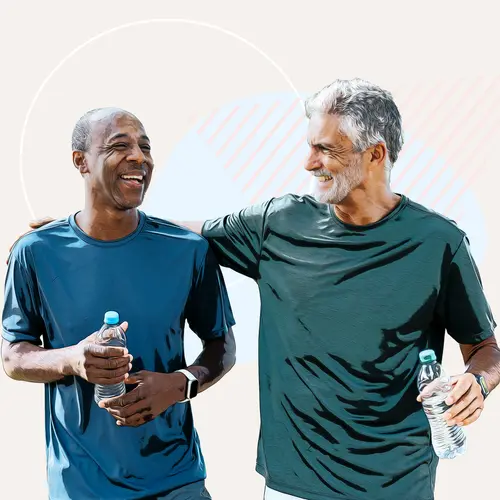Do you put as much care into your personal health as you do into the maintenance of your car? Ken Goldberg, MD, asks that question of all his male patients.
"Rather than tell men to have their prostates checked or to guard against heart disease, I urge them to drop the 'bulletproof' attitude, get involved in health screenings and realize that diseases can happen to anybody," says Goldberg, who in 1989 founded the first center specializing in male health.
While men need to pay attention to their health, they also need to know where to go for help. Some in the healthcare field feel that the healthcare community in the United States doesn't do enough for men.
No Leaders
"Nobody on the national or state level is leading the general charge toward making men's health care better," says Goldberg. "For instance, the National Institutes of Health has an office of women's health but none for men."
"We hear a great deal about women's and children's health," says Alvin Baraff, PhD, founder of MenCenter Counseling in Washington, DC "For male health care to improve, we must see more male health care providers in the media talking to men about their health needs."
According to the Men's Health Network, a nonprofit lobbying and information organization in Washington, DC, men's life expectancy in the United States is more than 10% lower than women's. Over the last 30 years, the mortality rate has increased more for men than for women in every age category.
"Many statistics reveal that men suffer higher rates of death and serious illness than women for most of their adult lives," says Martin Miner, MD, of Harvard Pilgrim Health Care of New England in Swansea, Mass. Miner is studying 500 blue-collar men, aged 30 to 70, to find out which factors can pull them into doctors' offices for health screenings. Baldness and impotence lead the way.
Care for the Whole Man
Many men don't know where to turn when they need help with gender-related concerns, such as finding a lump on a testicle or having trouble achieving an erection.
"I bet there are no more than five men's health centers in the U.S.," says Tony Lanzillo of the New Jersey Institute for Men's Issues, a lobbying organization. "We want to bring men's health to leaders in government, business, academia, and politics, thereby creating more men's health centers that will take better care of the whole man."
But some in the field don't think men's health is neglected. "There is no office for men's health because for many, many years men were the ones being studied in clinical research," says Ellen Pollack, spokeswoman in the office of research on women's health at the National Institutes of Health in Washington, DC. "And those findings were used to treat everybody. This office was established to make sure women were included in clinical studies and that the research was focusing on issues important to women's health."
Perhaps the real problem has less to do with research and more with conveying the results of the research to men. Baraff thinks the media can play a vital role in this effort. "A good start would be health spots during sports shows," he says.
